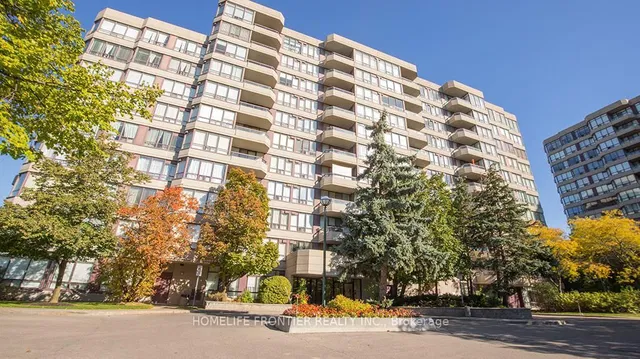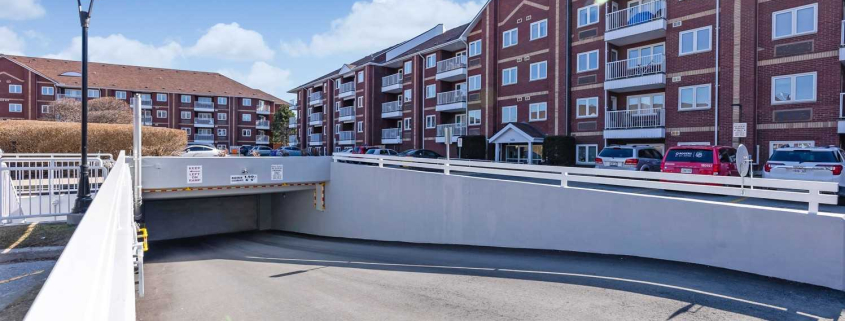Concrete Driveway Resurfacing: Cost-Effective Solutions for Property Managers
Managing a multi-unit property in the Greater Toronto Area comes with unique challenges, and maintaining concrete driveways ranks high on the list of concerns for property managers. Between harsh winter conditions, constant traffic, and the natural aging process, concrete driveways deteriorate faster in the GTA than in many other regions. For property managers overseeing residential complexes, commercial buildings, or mixed-use developments, the question isn’t whether your driveways will need attention—it’s when, and more importantly, how to address the issue cost-effectively.
The good news is that full replacement isn’t always necessary. Concrete resurfacing offers property managers a budget-friendly alternative that can extend the life of existing driveways by 10-15 years when properly executed. Understanding your options, timing the work strategically, and selecting the right concrete restoration contractor can save your property thousands of dollars while maintaining curb appeal and safety standards that tenants and visitors expect.
Understanding When Your Property’s Driveways Need Resurfacing
Before exploring solutions, property managers need to accurately assess whether resurfacing is the appropriate remedy or if more extensive repairs are required. This evaluation saves time and ensures you’re investing in the right solution from the start.
Signs That Resurfacing is the Right Solution
Concrete resurfacing works best when the underlying structure remains sound but the surface shows wear. Property managers should look for these indicators that resurfacing will be effective:
Surface-level damage including minor scaling, small cracks (less than 1/4 inch wide), light spalling, discoloration from de-icing salts common in Toronto winters, and surface pitting from freeze-thaw cycles. If your driveway has these issues but no significant settling or deep structural cracks, resurfacing is likely your most cost-effective option.
Aesthetic concerns also make excellent candidates for resurfacing. Properties with dated concrete that looks worn but functions properly can benefit tremendously from a fresh surface layer that updates the property’s appearance without the disruption and expense of complete replacement.
When More Extensive Work is Required
Some situations exceed what concrete resurfacing can address. Property managers should recognize when deeper intervention is necessary:
Foundation settlement creates uneven surfaces and requires addressing the underlying soil issues before any surface treatment. Severe cracking—those wider than 1/2 inch or showing vertical displacement—indicates structural problems that resurfacing won’t fix. Water pooling issues suggest improper drainage that needs correction before resurfacing can be successful.
In the GTA, we frequently see properties where decades of freeze-thaw cycles have compromised the concrete’s structural integrity. A qualified concrete restoration contractor can assess whether the base remains solid enough for resurfacing or if sections need replacement.
Cost-Effective Resurfacing Solutions for GTA Property Managers
Property managers have several resurfacing options, each with distinct advantages, costs, and appropriate applications. Selecting the right method depends on your property’s specific conditions, budget constraints, and long-term management strategy.
Concrete Overlay Systems
Concrete overlays involve applying a new layer of concrete or polymer-modified concrete over the existing surface, typically 1/4 to 1 inch thick. This represents one of the most popular choices for property managers in Toronto for good reason.
Cost structure: Overlays generally run between $4-$8 per square foot for materials and labor, significantly less than the $12-$18 per square foot for complete replacement. For a typical 5,000 square foot driveway servicing a multi-unit property, this translates to potential savings of $40,000-$50,000.
Durability in Toronto’s climate: Modern polymer-modified overlays perform exceptionally well in freeze-thaw conditions. The key is proper surface preparation and application during appropriate weather windows, typically late spring through early fall in the GTA.
Application timeline: Most overlay projects complete within 3-5 days, minimizing disruption to tenants. However, curing time means limiting traffic for 5-7 days after application—an important consideration for property access planning.
Micro-Topping and Thin Bonded Systems
For properties where the existing concrete shows minor wear but remains structurally excellent, micro-toppings offer an even more economical solution. These ultra-thin applications (1/8 inch or less) provide a fresh wearing surface.
Property managers appreciate micro-toppings for several reasons. The application is faster than traditional overlays, costs run 20-30% less than standard overlay systems, and tenants experience minimal disruption. These systems work particularly well for properties on regular maintenance schedules, allowing you to address surface wear before it develops into larger problems.
The limitation is that micro-toppings don’t address anything beyond surface-level issues. They’re perfect for preventative maintenance but won’t hide significant imperfections or level uneven areas.
Resurfacing with Decorative Options
Property managers increasingly recognize that driveway resurfacing presents an opportunity to enhance property value beyond simple repair. Stamped overlays, colored concrete, and exposed aggregate finishes cost only marginally more than standard resurfacing while significantly improving curb appeal.
For properties competing in Toronto’s rental market, this aesthetic upgrade can justify higher rents and improve tenant retention. The additional cost—typically $2-$4 per square foot above basic resurfacing—often returns value through reduced vacancy rates and higher property valuations.
Strategic Partial Resurfacing
Properties with large paved areas don’t always require complete resurfacing. A cost-conscious approach involves identifying and addressing the most deteriorated sections while scheduling the remaining areas for future phases.
This strategy offers property managers several advantages. Capital expenses spread across multiple fiscal years, high-traffic areas receive priority attention, and you can adjust future plans based on actual wear patterns. Many GTA property managers find this phased approach easiest to budget and least disruptive to operations.

Toronto Climate Considerations for Concrete Driveway Longevity
The Greater Toronto Area’s climate poses specific challenges for concrete driveways that property managers must understand to make informed decisions about resurfacing timing and methods.
Freeze-Thaw Cycle Impact
Toronto typically experiences 40-60 freeze-thaw cycles annually—periods when temperatures cross the freezing point. Water penetrating concrete expands when frozen, creating pressure that causes scaling, spalling, and cracking. This cycle is the primary culprit behind accelerated concrete deterioration in our region.
Properly executed concrete resurfacing with modern materials significantly improves resistance to freeze-thaw damage. Polymer-modified overlays, in particular, offer reduced permeability that limits water infiltration. Property managers should ensure contractors specify low water-cement ratios and appropriate air entrainment in resurfacing mixes—critical factors for Toronto applications.
De-Icing Salt Damage
Ontario winters mean salt application is unavoidable, but sodium chloride and other de-icing chemicals accelerate concrete deterioration. Property managers walking this tightrope between safe surfaces and concrete preservation need resurfacing solutions that address salt damage.
Modern resurfacing products can include penetrating sealers that create a protective barrier against salt infiltration. Applied correctly, these treatments extend the life of resurfaced driveways by 3-5 years in salt-exposed environments. The investment in quality sealers—typically adding $1-$2 per square foot—pays dividends in reduced future repair costs.
Optimal Timing for Resurfacing Projects
Temperature and moisture conditions dramatically affect resurfacing success. In the GTA, property managers should target these windows:
Ideal conditions: Late May through September offers consistently favorable temperatures (15-25°C) with lower humidity and minimal precipitation. Concrete cures optimally in these conditions, maximizing bond strength and durability.
Acceptable with precautions: April, early May, and October can work if contractors take appropriate measures for temperature control and protection from precipitation. Extended curing times may be necessary.
Avoid: November through March presents too many risks. Cold temperatures prevent proper curing, moisture management becomes problematic, and the likelihood of project delays increases substantially.
Property managers should plan resurfacing projects 6-8 months ahead, securing contractor availability during peak season while allowing flexibility for weather-related scheduling adjustments.
Winter Preparation and Maintenance
Even the best concrete resurfacing requires proper winter maintenance to maximize longevity. Property managers should implement protocols that protect their investment:
Use calcium magnesium acetate instead of traditional rock salt where possible—it’s less damaging to concrete while remaining effective for ice control. Ensure proper drainage to prevent water pooling and freezing. Schedule fall inspections to identify and seal any minor cracks before winter. These preventative measures significantly extend the time between resurfacing needs.
Choosing the Right Concrete Restoration Contractor in the GTA
Selecting a qualified contractor might be the most critical decision property managers make in the resurfacing process. The difference between a contractor who understands commercial property needs and one who doesn’t can mean the difference between a 10-year solution and costly repairs within 2-3 years.
Essential Qualifications and Experience
When vetting contractors for your property, property managers should verify several key qualifications. Look for established businesses with substantial commercial experience—residential driveway work differs significantly from commercial property applications in scale, traffic management, and durability requirements.
Contractors should provide proof of WSIB coverage and comprehensive liability insurance, protecting your property from liability if accidents occur. Request references from other property managers or commercial clients, specifically asking about project completion timelines, budget adherence, and long-term performance.
Experience with Toronto’s specific climate conditions matters enormously. Contractors familiar with local freeze-thaw cycles, appropriate materials for GTA conditions, and seasonal timing considerations deliver superior results.
Understanding Project Specifications
Qualified concrete restoration contractors provide detailed specifications before work begins. Property managers should expect documentation covering surface preparation methods, materials specifications including mix designs, application procedures and quality control measures, curing protocols, and warranty terms.
Be wary of contractors offering significantly lower bids without detailed specifications—corners cut during application almost always result in premature failure and higher long-term costs.
Traffic Management and Tenant Communication
Commercial properties require minimal disruption to operations. Experienced contractors develop comprehensive plans for phased work that maintains access, creates clear signage and barriers, provides realistic timelines for each phase, and coordinates with property management on tenant communication.
Property managers should discuss these logistics upfront, ensuring contractors understand your property’s specific access requirements and peak usage times.
Realistic Budgeting and Timeline Expectations
For GTA property managers, realistic budgeting for quality concrete resurfacing includes understanding the full project scope. A typical 5,000 square foot commercial driveway resurfacing project might break down as follows:
Surface preparation and repairs: $5,000-$8,000, depending on existing condition. Overlay material and application: $20,000-$40,000, varying with overlay type and thickness. Sealer application: $2,000-$4,000 for quality penetrating sealers. Traffic management and signage: $1,000-$2,000 for proper setup. Warranty and follow-up service: typically included but verify terms.
Total project costs for comprehensive resurfacing typically range from $28,000-$54,000 for this size project—substantial savings compared to $60,000-$90,000 for complete replacement.
Timeline-wise, property managers should expect 2-3 weeks from project start to full traffic resumption, including preparation, application, curing time, and final sealing.
Making the Right Decision for Your Property
Concrete driveway resurfacing represents one of the smartest investments property managers in the Greater Toronto Area can make. When timed appropriately and executed by qualified professionals, resurfacing extends driveway life at a fraction of replacement costs while maintaining the safety and aesthetics your tenants expect.
The key to successful resurfacing lies in accurate assessment of your property’s current condition, selection of appropriate resurfacing methods for Toronto’s climate, strategic timing that minimizes disruption, and partnership with experienced contractors who understand commercial property requirements.
Property managers who take a proactive approach—addressing surface deterioration before it becomes structural failure—consistently achieve the best outcomes both financially and operationally. Regular inspections, preventative maintenance, and strategic resurfacing create a sustainable cycle that maximizes property value while controlling capital expenses.
Your Next Steps
If your property’s driveways show signs of wear, don’t wait until minor issues become major expenses. A professional assessment can determine whether resurfacing offers the cost-effective solution you need or if other interventions are required.
Nusite Group brings over 30 years of experience in concrete restoration and waterproofing services throughout the Greater Toronto Area. Our team understands the unique challenges Toronto’s climate presents and delivers solutions engineered for long-term performance. From commercial properties to multi-unit residential complexes, we provide the foundation and waterproofing applications that property managers trust.
Whether you manage a single building or an extensive property portfolio, our expertise in concrete resurfacing, foundation repair, and commercial restoration ensures your project is completed on time, within budget, and built to last through decades of Canadian winters.
Contact Nusite Group for a comprehensive property assessment and detailed proposal tailored to your specific needs and budget. Let us show you why Toronto property managers have relied on our expertise for over three decades.



